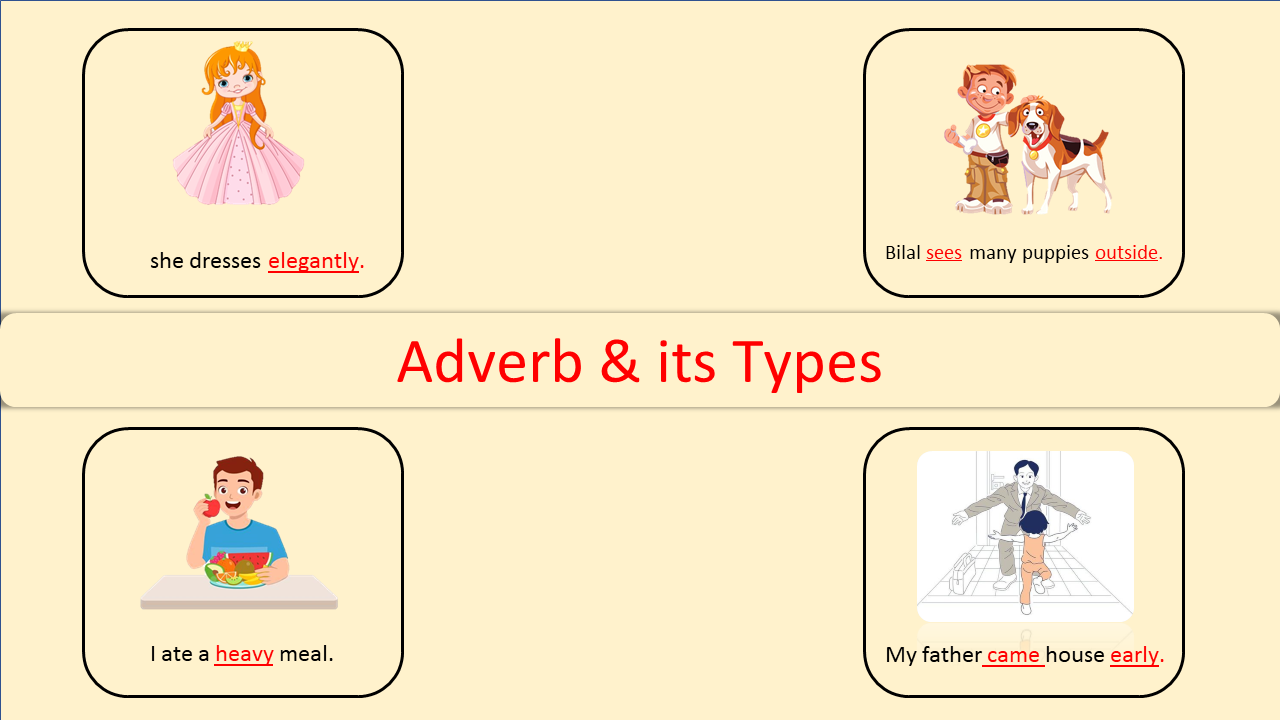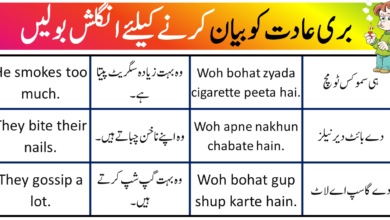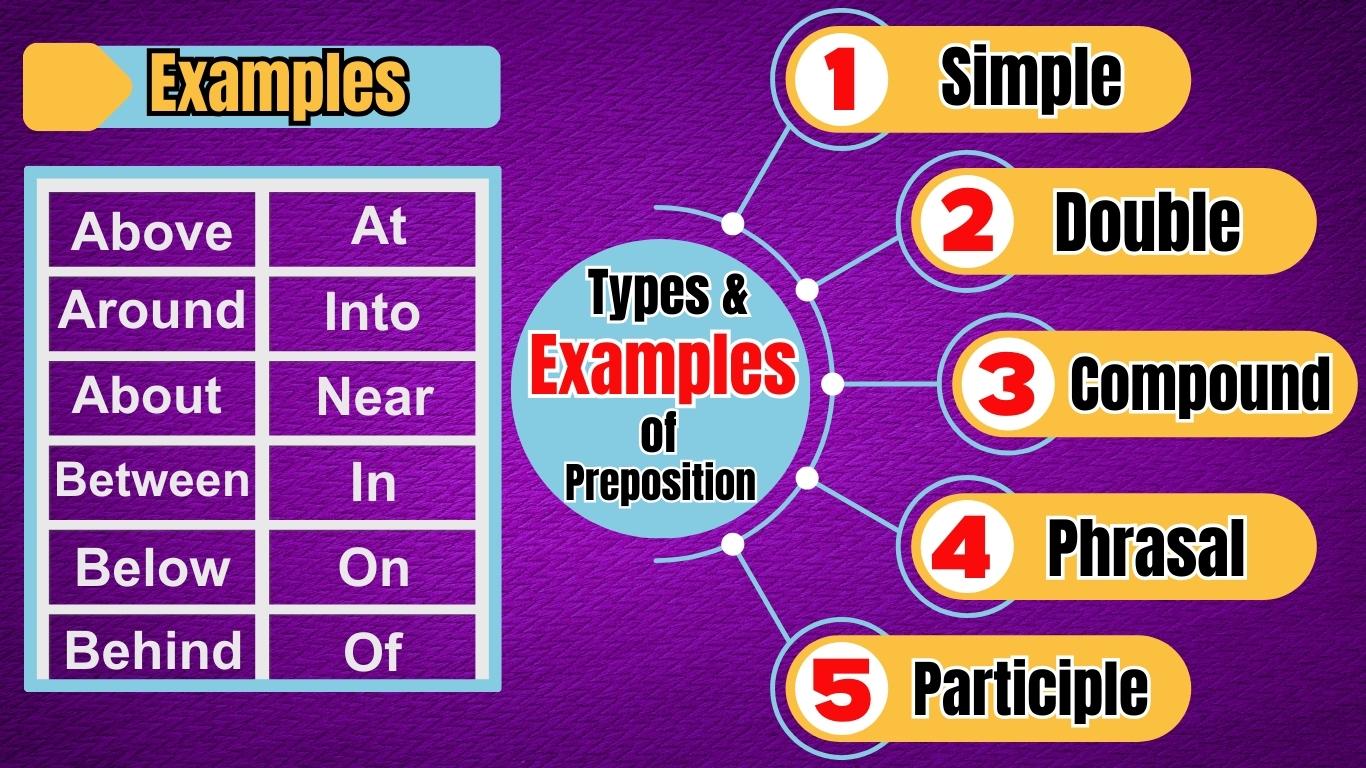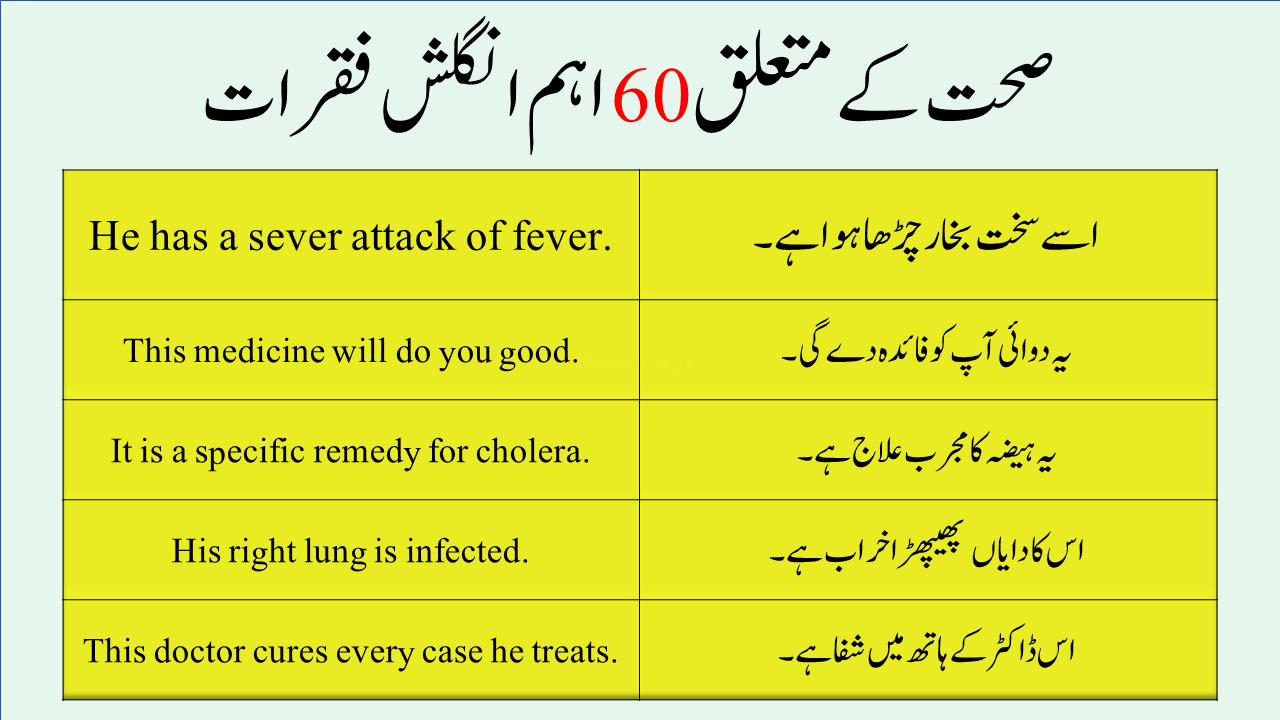What Is Adverb And Their Types Of Adverbs In Urdu and English\Hindi With Examples
What Is Adverb And Their Types Of Adverbs
What Is Adverb And Their Types Of Adverbs in Urdu and English\Hindi With Examples given in this article? An adverb describes the virtue of nouns and pronouns. In this article, the adverb is fully illustrated with its types and the verb is explained with examples. Examples are given in the Urdu language to easily understand them. As the importance of the English language cannot be denied nowadays, the English language is now spoken and understood in every country of the world. It has become very important to understand and learn English in order to do business in the global market.
In the age of science, the world is progressing day by day and at the same time, the importance of the English language has also increased. Therefore, in order to learn English, it is essential that you also learn grammar, because without learning grammar, you will not be able to master English. With all of this in mind, learning a basic branch of grammar is learning the adverb. When you learn the adverb well, then learning English will be a little easier.
Types of Adverbs in Urdu and English\Hindi With Examples
The following article provides simple material and describes What Is Adverb And Their Types Of Adverbs and English\Hindi With Examples so that Urdu and Hindi speakers can easily learn English. We strive to provide our readers with easy-to-understand content that even an average mind can easily understand. Let’s use our skills in learning English. Get the full PDF of the adverb now by clicking on the link below.
Definition of Adverb with examples
A word that qualifies anything except a noun or a pronoun is called an adverb.
ایسا لفظ جو ناؤن اور پروناؤن کے سوا کسی بھی چیز کا وصف بیان کرے ۔
E.g: Daily, somewhere, quickly, calmly, everywhere, regularly, freely, silently, near, soon, nowhere, etc.
Examples
I gulped my dinner.
Bilal sees many puppies outside.
my father came house early.
I ate a heavy meal.
she dresses elegantly.
Types of Adverb
- Adverb of time
- Adverb of place
- Adverb of manner
- Adverb of frequency
- Adverb of degree
- Adverb of interrogative
- Adverb of relative
- Adverb of negation
Adverb of time with examples
Definition: The words which point out the time are called “adverbs of time.
ایسا لفظ جو وقت کی نشاندہی کرے ۔
E.g: Any time, now, before, late, soon, every day, last week, last month, today, tomorrow, yesterday, etc.
Examples
He will return soon.
وہ جلد واپس آجائے گا۔
Bilal went there five minutes ago.
بلا ل پانچ منٹ پہلے وہاں گیا۔
We frequently go there.
ہم اکثر وہاں جاتے ہیں۔
He always plays foul.
وہ ہمیشہ غلط کھیلتا ہے۔
He goes there every day.
وہ روزانہ وہاں جاتا ہے۔
Adverb of place with examples
Definition: It denotes a place of occurrence.
یہ کسی کام کے وقوع کا موقع محل ظاہر کرتا ہے۔
E.g: Here, there, where, over there, name of any place, Khanewal, Lahore, etc.
Examples
The crow searched water everywhere.
کوے نے ہر جگہ پانی تلاش کیا۔
The cat is under the table.
بلی میز کے نیچے ہے۔
He was sitting outside the room.
وہ کمرے کے باہر بیٹھا ہے۔
I live in Khanewal.
یں خانیوال میں رہتا ہوں۔
This college is very famous.
یہ کالج بہت مشہور ہے۔

Adverb of manner with examples
It denotes the manner of an occurrence.
یہ کسی کام کے کرنے یا ہونے کا طریقہ ظاہر کرتا ہے۔
E.g: Well, badly, tightly, quickly, loudly, neatly, cleverly, correctly, roundly, etc.
Examples
Ali acted very cleverly.
علی نے بڑی ہوشیاری سے کام کیا۔
Najma writes neatly.
نجمہ صاف صاف لکھتی ہے۔
He answered me correctly.
اس نے مجھے درست طور پر جواب دیا۔
He angrily slaughtered his goat.
اس نے غصے سے اپنی بکری ذبح کر دی۔
Adverb of frequency with examples
Definition :It denotes number of frequency.
یہ تعداد ظاہر کرتا ہے۔
E.g: Never, often, seldom, always, once, twice, again, thrice, sometimes, secondly, and thirdly, etc.
Examples
She seldom comes here.
وہ کبھی کبھار یہاں آتی ہے۔
He goes there twice a day.
وہ دن میں دو دفعہ وہاں جاتا ہے۔
They often come here.
وہ اکثر یہاں آتے ہیں۔
I sometime meet them.
میں انہیں کبھی کبھی ملتا ہوں۔
She never come here.
وہ کبھی یہاں نہیں آئی ۔
Adverb of degree with examples
It denotes the quantity or degree.
یہ کسی کام کی حد یا درجہ ظاہر کرتا ہے۔
E.g: Very, much, little, more, less, least, too, almost, partly, farther, quite, enough, fully somewhat, so wholly, etc.
He is least interested in games.
وہ کھیلوں میں کم دلچسپی رکھتا ہے۔
He is quite healthy now.
وہ اب بالکل صحت یاب ہے۔
I totally agree with you.
میں آپ سے مکمل متفق ہوں۔
It is extremely hot here.
ہاں بہت گرمی ہے۔
He completely changed my career.
اس نے میرے کیریئر کو مکمل طور پر بدل دیا۔
Adverb of interrogative
Definition: It is used to ask questions.
یہ سوال پوچھنے کیلئے استعمال ہوتا ہے۔
E.g: Where, when, why, how, how many, what, etc.
Examples
Where is Bilal?
بلال کہاں ہے؟
When did he go?
وہ کب گیا؟
How did he solve this sum?
اس نے یہ سوال کیسے حل کیا؟
How many trees are there in the garden?
باغ میں کتنے درخت ہیں؟

Adverb of a relative with Examples
It is used to join two sentences.
یہ دو جملوں کو ملانے کیلئے استعمال ہوتا ہے۔
E.g: Where, when, why, how, how many, what, etc.
Examples
Do you know when he will reach?
کیا آپ جانتے ہیں کہ وہ کب آئے گا؟
Is this the place where I was born?
کیا یہ وہی جگہ ہے جہاں میں پیدا ہوا؟
Do you know where she lives?
کیا آپ جانتے ہیں کہ وہ کہاں رہتی ہے؟
I don’t know when they came.
پتہ نہیں وہ کب آئے۔
Adverb of negation with examples
Definition : It affirms or negates something.
یہ کسی کام کے ہونے یا نہ ہونے کو ظاہر کرتا ہے۔
E.g: Yes, no, not, indeed, surely, probably, never, ever, indeed, etc.
Examples
There was no boy in the room.
مرے میں کوئی لڑکا نہیں تھا۔
It is not my table.
یہ میری میز نہیں ہے۔
Indeed, he is a good man.
بے شک وہ اچھا آدمی ہے۔
This book is not mine.
یہ کتاب میری نہیں ہے۔
She never come here.
وہ کبھی یہاں نہیں آئی ۔

Adverb PDF Download
As we have discussed in detail adverbs and kinds of adverbs with examples in the above article. Make your time valuable and get a PDF of English Vocabulary without wasting time by clicking on the link below. for more interesting English vocabulary sentences visit this link.






